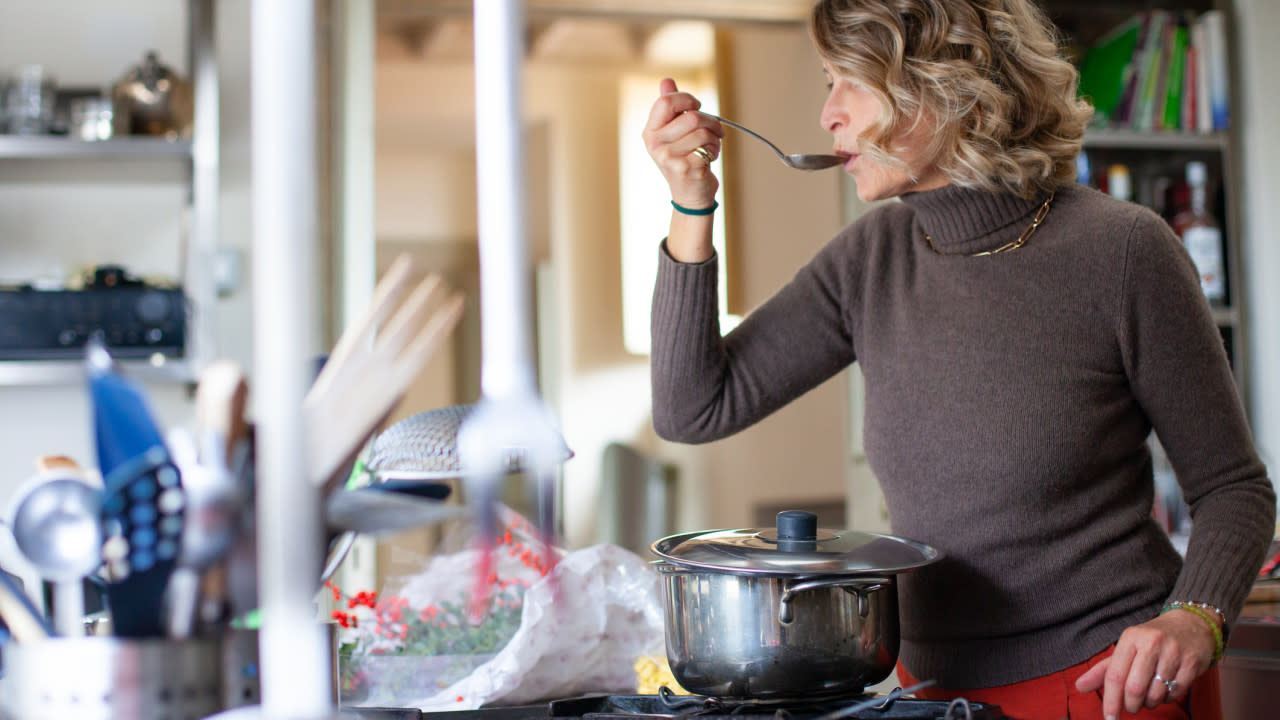When it comes to lowering your risk for certain cancers and chronic health conditions through diet, what you eat matters. You likely know that certain eating plans, like the Mediterranean diet, are scientifically linked to a lower risk of cancer.
But it isn’t just what you eat that matters; how you cook it does too, specifically when it comes to red meat. This is especially important to consider as you get older and particularly into your 60s, since cancer risk increases with age up until 70 years old, after which it decreases slightly.
There is already a lot of confusion about how eating red meat impacts health, particularly cardiovascular health. “Red meat often gets a bad rap when it comes to heart health, but the full story is more nuanced,” says registered dietitian Angela Houlie, RDN, CDN.
Houlie explains that it’s true that overconsumption of highly processed red meats (like deli meats, bacon and sausages) is linked to higher risks of heart disease. But she says moderate amounts of high-quality, unprocessed red meat (those that are grass-fed or pasture-raised), can be part of a balanced diet. “Red meat is rich in protein, iron, zinc and vitamin B12, which are nutrients many people, especially women, may fall short on,” she adds.
The key, Houlie says, is frequency, portion size and context (it’s important to eat vegetables, whole grains and foods with unsaturated fats and not just meat, she explains). As mentioned before, how you cook your meat matters too.
🩺SIGN UP for Parade’s health newsletter with expert-approved tips, healthy eats, exercises, news & more to help you stay healthy & feel your best self💊
The Cooking Method That Can Increase Your Risk of Cancer, According to Registered Dietitians
According to scientific research, cooking red meat at high heat can increase the risk of cancer. Since the median age of cancer diagnosis is 67, this might be particularly concerning to you if you’re in your 60s and love a grilled steak.
Registered dietitian Sarah Lynn Quick, RDN, CDN, explains that this is because grilling meat at a high temperature can produce harmful compounds called heterocyclic amines (HCAs) and polycyclic aromatic hydrocarbons (PAHs).
“HCAs form when amino acids and creatine in meat react under high heat, while PAHs develop when fat drips onto flames and creates smoke that coats the meat,” Quick explains. She says that both can damage DNA and have been linked to higher risks of cancers, especially colorectal cancer. “This risk is increased with heavily charred or well-done meat,” she adds.
Related: The #1 Way to Lower Your Cancer Risk Naturally, According to Doctors
Houlie also says that cooking meat at a high temperature (particularly grilling or pan-frying) is detrimental to health because both HCAs and PAHs have been shown to be mutagenic, explaining, “[This means] they can alter DNA and potentially increase cancer risk, particularly for colorectal, pancreatic and prostate cancers.”
Safer Ways To Cook
Does this mean you have to give up grilling meat if you want to lower your risk of cancer? Fortunately, no. Houlie says that one way to significantly lower your risk of cancer is to marinate your meat for at least 30 minutes using herbs like rosemary and thyme, which are full of protective antioxidants. Lynn adds that herbs, citrus, vinegar and olive oil also contain antioxidants, making them great ingredients to include in your marinade as well.
Related: Two Nutrients Linked to Lowering Your Cancer Risk, According to Oncologists
Houlie says that pre-cooking meat partially in the oven or microwave before grilling can also reduce grill time, therefore minimizing the risk that comes with cooking meat at a high temperature. According to Quick, using gentler cooking methods like baking, roasting or steaming instead of grilling or pan-frying can reduce the risk too.
When you are grilling, Quick says to keep temperatures lower and avoid direct flames. Houlie adds to this, saying to flip the meat frequently to avoid charring. “Importantly, trim visible fat to minimize flare-ups and PAH formation,” she adds.
Related: What You Should Stop Doing By Age 50 to Prevent Cancer, According to Oncologists
As you can see, not all cooking methods are created equal; some are healthier than others. But it’s also important to remember Houlie’s earlier point: frequency matters. If you want to enjoy a nice grilled steak now and then, it doesn’t mean you’re destined to get cancer. It’s the everyday eating habits that matter the most and impact your health greatly both now and in the future.
Up Next:
Related: This Common Breakfast Habit Could Be Putting Extra Strain on Your Heart if You’re Over 60
Sources
-
Angela Houlie, RDN, CDN, registered dietitian
-
Sarah Lynn Quick, RDN, CDN, registered dietitian
This story was originally reported by Parade on Sep 19, 2025, where it first appeared in the Health & Wellness section. Add Parade as a Preferred Source by clicking here.
Yahoo News – Latest News & Headlines
Read the full article .


